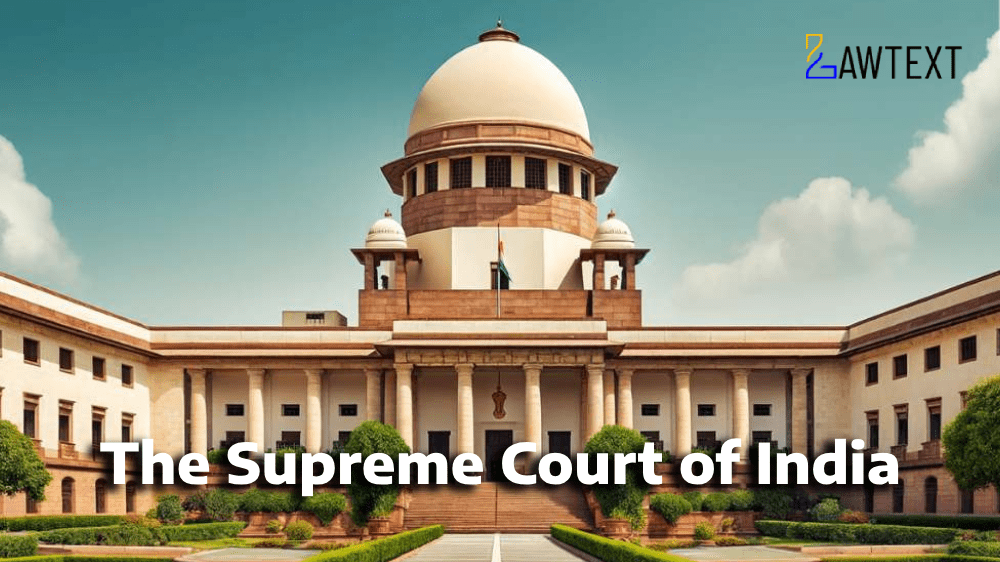

Best Interests of the Child: The Court emphasized that the welfare and best interests of the child are paramount in custody disputes, especially when the child has intellectual disabilities. (Para 24)
Parens Patriae Doctrine: The Court has a duty to protect individuals who are unable to make independent decisions, particularly in cases involving intellectual disabilities. (Para 24)
Respect for Foreign Court Orders: While the Court acknowledged the Idaho Court’s guardianship order, it ultimately based its decision on the best interests of Aadith, rather than solely on comity of courts. (Para 31)
The Supreme Court held that Aadith is incapable of making independent decisions due to his intellectual disability, with cognitive functioning equivalent to an 8-10-year-old child. (Para 23) The Court ruled that Aadith’s best interests and welfare would be served by returning to the US, where he can continue his education and reside with his younger brother under the Appellant’s guardianship. (Para 39) The Court set aside the High Court’s judgment and directed the Appellant to return to the US with Aadith and his brother within 15 days. (Para 41)
The Supreme Court allowed the appeal, setting aside the High Court’s judgment and directing the repatriation of Aadith to the US, emphasizing the best interests of the child and the need for continued care and education in a familiar environment.
Latin Terms:
Parens Patriae – The state’s power to act as a guardian for those unable to care for themselves. (Para 24)
Major Acts:
Constitution of India (COI) – Article 32, Article 142
Code of Criminal Procedure, 1973 (CrPC) – Section 482
Indian Penal Code, 1860 (IPC) – Section 340
Guardians and Wards Act, 1890
Medical Termination of Pregnancy Act, 1971 – Referred in context of decision-making capacity (Para 28)
Subjects:
Custody Dispute – Between parents of a US citizen with intellectual disability
Guardianship – Appellant granted full and permanent guardianship by Idaho Court
Best Interests of the Child – Paramount consideration in custody matters
Intellectual Disability – Mild Intellectual Disability with cognitive functioning equivalent to an 8-10-year-old
Repatriation – Ordered to return to the US for continued education and care
Parens Patriae Doctrine – Court’s duty to protect the welfare of individuals unable to make independent decisions
Facts:
Nature of the Litigation:
The case involved a custody dispute over Aadith Ramadorai, a 22-year-old US citizen diagnosed with Ataxic Cerebral Palsy and Mild Intellectual Disability. The Appellant (mother) and Respondent No. 4 (father) were both US citizens, and the dispute arose over Aadith’s custody and residence.
The Appellant sought repatriation of Aadith to the US, where he had been receiving specialized education and care, while the Respondent No. 4 argued that Aadith wished to stay in India.
Who is Asking the Court and for What Remedy?
The Appellant filed a criminal appeal and a contempt petition before the Supreme Court of India, challenging the High Court’s decision that Aadith was not illegally detained and was happy to reside in India with his father.
The Appellant sought custody of Aadith and his return to the US, citing the Idaho Court’s order granting her full and permanent guardianship.
Reason for Filing the Case:
The Appellant contended that Aadith’s best interests would be served by returning to the US, where he could continue his education and reside with his younger brother, who also has intellectual disabilities.
The Respondent No. 4 argued that Aadith was capable of making independent decisions and wished to stay in India.
What Has Already Been Decided Until Now?
The Idaho Court had granted the Appellant full and permanent guardianship of Aadith.
The High Court of Madras, however, ruled that Aadith was not illegally detained and was happy to reside in India with his father, based on a brief oral interaction with Aadith.
Issues:
Whether Aadith is capable of making independent decisions? (Para 6)
Whether Aadith’s best interests and welfare would be served by permitting him to continue residing with Respondent No. 4 in India? (Para 6)
Submissions/Arguments:
Appellant’s Submissions:
a. Aadith has an intellectual disability with a full-scale IQ of 53, placing him in the “very low range of cognitive ability.” He lacks the capacity to make independent decisions. (Para 7)
b. Aadith’s best interests would be served by returning to the US, where he has access to specialized education, social security benefits, and disability services. (Para 25)
c. The Idaho Court had already granted the Appellant full and permanent guardianship, and the High Court should have respected this order. (Para 29)
Respondent No. 4’s Submissions:
a. Aadith is mentally fit to make decisions about his welfare and does not require a guardian. (Para 5)
b. Aadith expressed a desire to stay in India with his father and was not coerced or manipulated. (Para 30)
c. The High Court’s decision was based on Aadith’s consent, and his wishes should be respected. (Para 30)
Citation: 2025 LawText (SC) (3) 35
Case Number: Criminal Appeal No. ____ / 2025 (Arising out of Special Leave Petition (Crl.) No. 17281 / 2024) WITH Contempt Petition (C) No. 9 / 2025 (In Special Leave Petition (Crl.) No. 17281 / 2024)
Date of Decision: 2025-03-03
Case Title: Sharmila Velamur Versus V. Sanjay and Ors.
Before Judge: (SURYA KANT J. , DIPANKAR DATTA J. , UJJAL BHUYAN J.)
Appellant: Sharmila Velamur
Respondent: V. Sanjay and Ors.